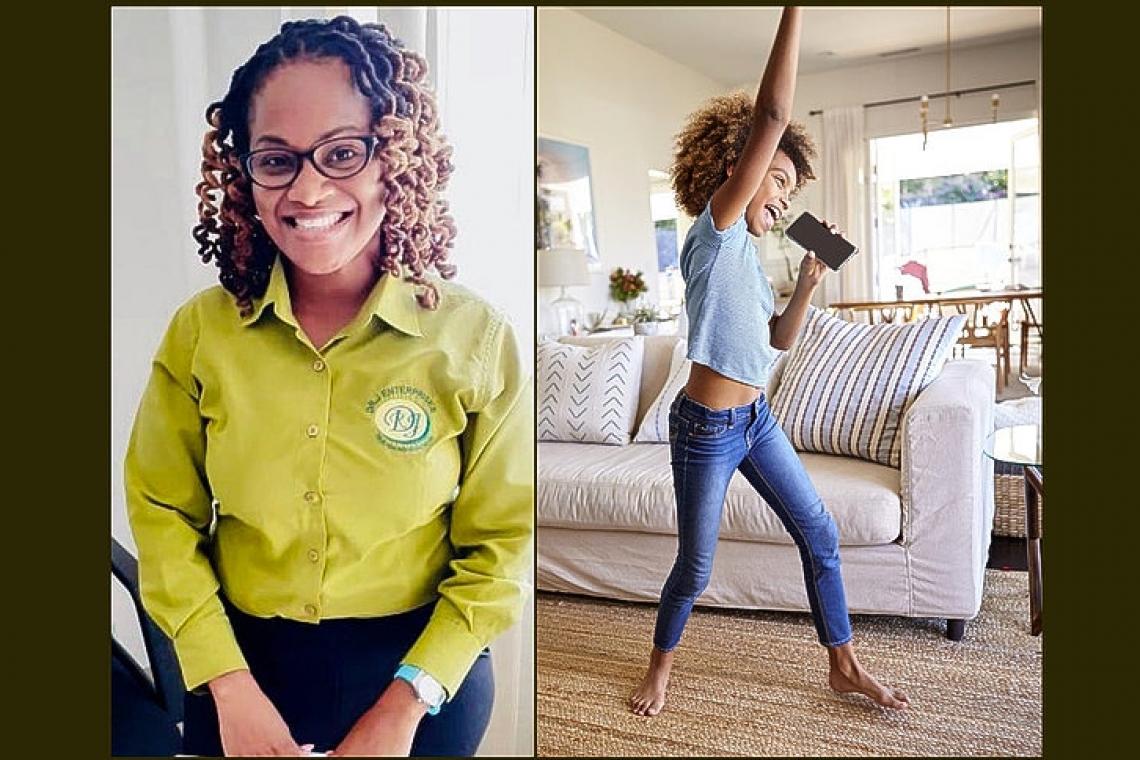Both adults and kids have had to deal with some pretty big changes over the past few months, and that can be stressful sometimes. For kids in particular, not seeing school friends in person every day, staying home, and having to do work without being in the classroom with the teachers is just…weird.
The KIDS Herald reached out to Ujima Foundation and spoke to Child and Adolescent Psychologist Judith Edouard to talk about stress, anxiety, and simple things that kids can do to stay happy and healthy.
A psychologist is someone who has studied the mind and behaviour, and Ms. Judy uses this knowledge to work with young people in her job. She can do things like help kids overcome shyness, or help kids and their teachers and parents understand each other better.
What can make us feel bad nowadays?
“We can see anxiety surrounding coronavirus. Some are afraid of contracting it, or spreading it to others,” Ms. Judy says. “Some kids might be overwhelmed by the number of school assignments, without having the direct contact and consistency provided by teachers. It’s different from being in the classroom, where the teacher is right there to help them. It can also be more difficult if the parent is not too familiar with Dutch or English” (whichever language your lessons are taught in).
“Some kids will feel isolated or alone, since they’re missing the social aspects like playing outdoors or getting a hug from the teacher.”
So, what do we do about it?
The good news is that the number one thing we can do to manage negative feelings, is something we can all do with a little effort and thought. First and foremost, we should have a structure to the day, says Ms. Judy. While “structure” may sound boring, it will actually decrease your boredom.
“A day without structure can increase boredom and anger, and anxiety can thrive.” So, along with an adult, plan out your daily schedule, which ideally should include time for school work (with different subjects), chores, fun activities, exercise, and time to connect with friends online. Bonus points for making a schedule that’s nice to look at, with pictures! Eating time and sleeping time should also be regular.
E-learning, or joining the class online, is also pretty new to everyone. We should try as much as possible to treat this like it’s the real classroom: have your materials ready (like pencils and notebooks) and make sure to be on time, just like you would normally.
Doing hands-on activities or playing games that relate to the lessons can also help to keep you motivated. Many teachers are sharing these types of activities with their students.
It can also be nice to have a different setting for practicing different subjects, such as math or languages. If you have the space, maybe you can practice your subjects in a few different spots in the house: math at the bedroom desk, languages in the living room, crafts on the porch?
Another suggestion by Ms. Judy is to do some yoga or meditation, together with the family. These two exercises in particular are good for both body and mind, so it can help to give you a sense of calm and balance.
It’s also important to exercise in general – remember, that’s something to make time for in the schedule. Physical activity is important for kids and adults alike, it helps with mental, emotional and physical wellbeing, and helps to relieve stress and anxiety.
Try taking a hike, planting in the yard, or going on a family bike ride. Indoors, you can do crafts or play games like UNO, charades, board games, hopscotch, complete an indoor obstacle course, or play marching band (where you march around the house playing instruments; you can even make your own). There are online fitness games and exercises you can follow, like Fitness Blender Kids Workout, Yoga for Kids, or GoNoodle, but also try to engage in games away from the screen as much as possible.
Lastly, it’s good to understand why all of these changes are needed, so speak to an adult like mom, dad, or your teacher, and ask questions. If you understand why you’ll need to do things like wear a mask in the store, wash your hands more often, or sit farther apart when you go back to school later, then it becomes a little bit easier to do.
Thanks Ms. Judy and the Ujima Foundation for sharing these tips!
You can learn more about COVID-19, by keeping an eye out for The KIDS Herald, and visiting us online. You’ll also see jokes, fun stories, and home-based activities meant just for kids! With an adult, go to www.thedailyherald.sx, select “Supplements” at the top of the page, and then select “Kids”. Recommended read: “The REAL way to wash your hands.”
Images: Ms. Judy (left picture) and a girl having fun at home (right picture.







